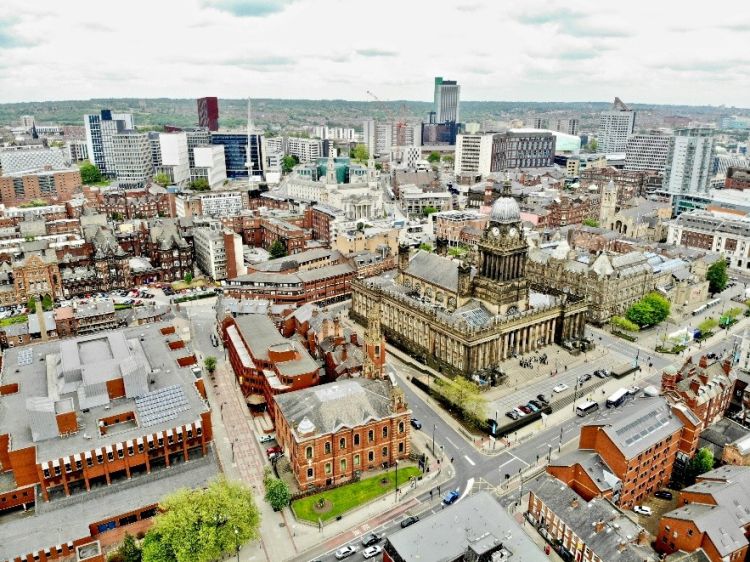Economics and Policy for Sustainability

“Rethinking economics, reshaping policy, driving just transition and systemic change”
We are an internationally leading research group committed to advancing economic thinking and re-shaping policy to enable human and more-than-human well-being within planetary boundaries. United by a shared understanding of the economy as embedded within biophysical and socio-political realities, we take a critical stance toward mainstream economic paradigms—particularly neoclassical economics. Our work is grounded in a rich tradition of heterodox thought, drawing on and advancing cutting-edge approaches in areas such as ecological economics, political economy, institutional economics, ecological macroeconomics, development economics, exergy and complexity economics, and governance studies. As an interdisciplinary group, we bridge theory and practice to inform transformative, policy-oriented research. Our work is united by a commitment to systemic change, social justice, and generating insights that empower communities, institutions, and policymakers to navigate social-ecological transformations.
Our core research areas include
-
Post-Growth Transformation and Eco-Social Policy: We explore how provisioning systems can be restructured to prioritise human well-being within planetary boundaries, moving beyond GDP growth as a central economic objective. Our research focuses on the political economy of post-growth transitions, examining approaches such as Universal Basic Services, industrial policy, and sustainable welfare systems. We investigate how these approaches address socio-economic inequalities and promote sufficiency, social justice, and economic democratisation, while also considering global dynamics of unequal exchange, the future of work, the role of trade unions, and the potential of economic planning to guide just and inclusive transformations.
-
Ecological Macroeconomics and Energy-Economy Modelling: We explore questions related to long-run growth, decoupling, structural change, and economic development. Using advanced modelling techniques—including environmentally extended input-output analysis, system dynamics, and energy-economy and economy-environment modelling—we aim to understand the macroeconomic implications of resource use, energy transitions, and innovation, as well as the role of energy efficiency and rebound effects in economic growth. Our work informs scenarios for alternative futures and strategies for decarbonisation, energy demand reduction, and resource sufficiency and efficiency.
-
Monetary Systems, (Macro-)Finance, and Sustainable Development: We analyse the role of finance in shaping sustainable development at both national and global levels. Our research explores financial systems, credit and debt dynamics, and the political economy of financial development, including the dynamics of unequal exchange. We examine how financial instruments, (international) monetary systems, and global financial flows influence sustainability outcomes, and assess initiatives for financing global public goods, environmental justice, and equitable development.
-
Institutions and Governance of Social-Ecological and Socio-Technical Systems: Our research investigates how economic coordination and governance institutions—across multiple levels, scales, and sectors—shape environmental outcomes, such as the transition to a low-carbon economy and the conservation of biodiversity, and their implications for social justice. We apply advanced institutional analysis to examine institutional interactions, legal frameworks, and policy instruments, assessing their effectiveness and equity in social-ecological and socio-technical systems and informing the design of improved institutional frameworks.
-
Human-Nature Relationships and Plural Values of Nature: We study the diverse ways people relate to and value nature, recognising that sustainability requires acknowledging cultural, relational, and intrinsic values, and embracing transdisciplinary, intercultural, and relational approaches. Our work informs ecosystem management, biodiversity conservation, and nature-based solutions, with a focus on justice, kinship, decolonial, and pluriversal perspectives.
-
Sustainable Cities and Urban–Rural Transitions: We use interdisciplinary approaches, complex systems modelling, and agent-based models to make cities and their surrounding environments—such as river basins, airsheds, and food systems—more habitable for both human and non-human life. Our research addresses urban challenges including climate change, biodiversity loss, and environmental degradation, exploring solutions such as urban energy systems, green infrastructure, and the water–energy–land–food nexus. We also study sustainable agriculture, farmer behaviour, and land management aligned with the Sustainable Development Goals, using mixed methods to understand how rural communities can thrive while reducing environmental pressures.
As part of the Sustainability Research Institute, we coordinate and supervise students on the Ecological Economics MSc.
Further information
View all members of our research group, our recent projects and publications.
PhD projects
We have opportunities for prospective postgraduate researchers. Find out more.
Contact us
If you would like to discuss an area of research in more detail, please contact Dr Diana Ivanova or Dr Richard Baernthaler

